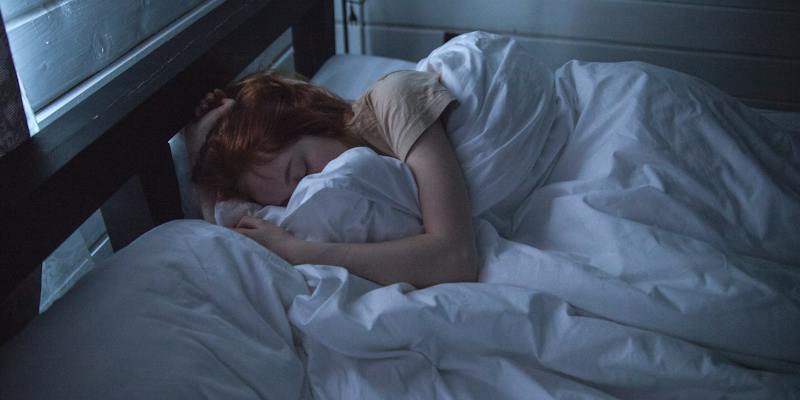It is common to experience fatigue following a complete nocturnal sleep, and all individuals have encountered the consequences of inadequate rest. As a result, numerous individuals contemplate the potential remedies and enduring consequences. For some, skipping sleep shows productivity and hard work. It's important to warn against this mindset. Sleep debt can cause many problems. Lack of 6 hours of sleep affects mood and cognition. High-quality sleep is vital for the brain. The significance of obtaining sufficient sleep for optimal daily functioning is emphasized by research. In severe instances, an individual may exhibit irrational or unusual behavior as a result of severe sleep deprivation.
The Challenge of Retaining Memories
Have you ever observed how mature individuals retain even the most minute particulars of past events, whereas we frequently have difficulty recalling conversations from the previous week? How do they maintain such a sharp memory in comparison to us? According to research, sleep plays a critical role in memory retention.
While asleep, the brain strengthens specific neural connections, thereby more deeply ingraining the knowledge acquired throughout the day into our memory. Additionally, it eliminates less critical information, thereby conserving memory space. This process, nevertheless, is disrupted when we fail to obtain sufficient quality sleep. Recent events become muddled due to the brain's inability to process and retain new information effectively.
As a result, recollections originating from periods of inadequate sleep tend to be fragmented, encompassing numerous details that are omitted or disregarded. An investigation conducted in 2019 by the University of California revealed that adults who had slept for eight hours or more had greater difficulty recalling task details than those who had slept for six hours or less.
Additionally, alarming data from statistics indicates that the mean duration of 6 hours of sleep for adults has diminished from approximately 8.5 hours in the 1950s to slightly less than 7 hours. Many younger individuals have reported memory problems in conjunction with this decline. Nations, including Spain and Japan, which recognize the importance of sleep in their cultures, have introduced customs such as ‘siesta’ and ‘inemuri’ to encourage midday naps.
Sleep Deprivation and Alzheimer

Developing Alzheimer's Disease is a terrifying thought. Recent studies suggest sleep deprivation may increase this disease's risk. Sleeping brains clean themselves vigorously. This cleaning removes brain cell waste. Beta-amyloid, an Alzheimer's-linked protein, dominates this waste. Insufficient sleep causes the issue. Beta-amyloid proteins build up because our brain's cleaning system doesn't work well. Over time, this buildup may increase Alzheimer's risk.
According to a 2013 National Institutes of Health study, sleep triggers glymphatic ten times stronger than wakefulness. It clears beta-amyloid and other toxins. This may be because chronic sleep deprivation maintains the presence of toxic proteins in the brain that result in Alzheimer’s. The sixth leading cause of death in America affects 5.8 million people, as reported by the Alzheimer’s Association in 2019. Also, according to the report, lifestyle factors such as sleep patterns may contribute to disease risk.
While sleep is vital for brain health, many people do not get adequate amounts. In 2021, the CDC reported that one-third of American adults fail to meet their daytime sleep recommendations. Considering the connection between sleep deprivation and Alzheimer’s, this number is alarming.
Impact of Insufficient Sleep on Mental Sharpness
Have you ever opened your eyes and felt that the entire mind is imprisoned, making it impossible to perform daily duties despite sleeping well? As noted by many, chronic sleep deprivation psychosis interferes with cognitive functioning. Products of the cognitive process are knowledge and thought. So, inadequate sleep severely affects the growth and learning of adolescents, most of whom are students. Consequently, the subject struggles with concentrating and remembering study material, greatly affecting the normal procedure of their daily activities. The same applies to adults. Sleep deprivation damages their performance in stressful occupations like driving or making important decisions.
According to a 2021 research study, people who slept less than the recommended amount of about 7-9 hours per night had as much as forty percent reduction in cognitive abilities compared with those who slept well. This is especially disquieting for adolescents, growing up in a vulnerable phase of brain development.
Influence of Sleep on Mental Well-being

Depression can also destroy sleep patterns. Studies show that depressed people sleep either too little or too much. Specific research pointed out that people sleeping less than six or more than eight hours every night tend to have a higher chance of developing depression in comparison with those who sleep for the number of hours falling within this range.
This situation presents a classic puzzle - it's challenging to determine whether sleep deprivation psychosis triggers depression or if it's the other way around. However, insufficient sleep aggravates depression, leading to further sleep disturbances. Symptoms of sleep disturbances are conspicuously present in the majority of severe brain disorders, including neurological and psychiatric conditions. The ramifications of 6 hours of sleep disruption are substantial, exerting influence over various facets, including the diagnosis, etiology, prevention, and treatment of these disorders.
Increased Risk of ADHD
The development of the child's brain is dependent on sufficient sleep. Sleep deprivation psychosis causes irritability in children, but the consequences extend beyond mere emotional distress. Existing research suggests that there is a positive correlation between sleep deprivation, specifically caused by respiratory difficulties and the probability of children developing symptoms associated with ADHD.
Research studies (e.g., the 2012 Journal of Pediatric Psychology article) have demonstrated that children who experience sleep disturbances are 20-30% more prone to exhibiting symptoms consistent with ADHD when compared to their peers who have adequate rest. Furthermore, research findings from the National Sleep Foundation indicate that academic achievement is adversely affected for children who consistently fall short of the recommended nightly sleep duration of less than eight hours.
The issue at hand extends beyond transient annoyance or routine academic achievement. Prolonged sleep insufficiency among children may give rise to enduring psychological issues. Children who consistently experience sleep disturbances have an increased susceptibility to developing mental health disorders in the future, according to a study published in Sleep Medicine Reviews in 2017. This highlights the urgency of addressing sleep concerns in their early stages to provide children with the essential groundwork for optimal cognitive and emotional growth.







